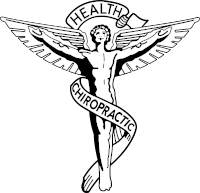
Pinched Nerve
This could be the bones, cartilage, muscles or tendons, or a combination of these.
When pressure is placed onto the nerve it prevents it from functioning properly. This triggers a range of unpleasant and sometimes debilitating symptoms as the body tries to warn the brain that the nerve is compromised.
Problems with pinched nerves can vary in severity and longevity. Some issues may be acute but temporary, whilst others can be long-lasting or even permanent. However, the earlier you obtain a diagnosis and start treatment for a pinched nerve, the more quickly you will be able to manage the symptoms. Fortunately, chiropractic care has been shown to be a very effective treatment for pinched nerves.
Causes of a pinched nerve
There are many different things that can cause a nerve to become pinched, and this can happen anywhere along the spine. Some of the most common reasons include:
- Misalignment of the spine, such as occurs when the body suffers a trauma like being involved in a car accident.
- Spinal disc degeneration. This is where the soft, gel-filled discs between each vertebrae degenerate, usually with age.
- Osteoarthritis. This condition can cause bony spurs to grow and project outwards, putting nerves under pressure.
- Herniated disc. This is where the discs crack and leak, causing the soft gel that cushions the vertebrae to leak out and the disc material to push against the nerves.
- Poor posture.
- An underlying medical condition such as arthritis or a tumor.
Symptoms of a pinched nerve
The exact symptoms that you may experience will largely depend on which nerve is being pinched and which areas of the body the affected nerve serves. Some of the indicators of a pinched nerve that you may notice could include:
- Numbness or decreased sensations in the part of the body supplied by the nerve.
- Tingling, pins and needles and other unusual sensations in the affected area.
- Pain, which could be aching, burning or sharp, and that may radiate outwards.
- Muscle weakness in the affected area.
- You feel like an extremity such as a hand or foot has fallen asleep and isn’t responding when you try and move it.
- Limited range of movement.
Better Health Care is Our Mission
Same Day Appointments are Available.


